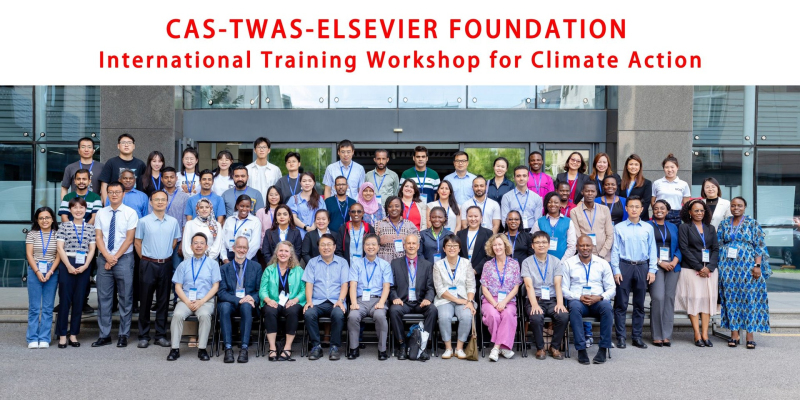
From 2–6 September, the CAS-TWAS Center of Excellence for Climate and Environment Sciences (ICCES) hosted the 'International Training Workshop for Climate Action', with 20 women scientists from developing countries discussing the results of their work. The event was held at the Institute of Atmospheric Physics of the Chinese Academy of Sciences, in Beijing, China.
Of the 20 scientists who gave a presentation, 15 were the recipient of a TWAS-Elsevier Foundation Project Grants for Gender Equity and Climate Action, a capacity-building programme that TWAS and The Elsevier Foundation launched in 2022. They were from Bangladesh, Benin, Bolivia (Plurinational State of), the Congo, Ghana, Kenya, Lebanon, Mozambique, Nepal, Nicaragua, the United Republic of Tanzania, Uganda, and Zimbabwe.
The grants support teams of women scientists, including one principal investigator with a PhD from a TWAS-identified science and technology lagging country, and scientists or technical experts from another developing country as co-applicants. The grants are for action-based projects that would bring tangible benefits to local communities.
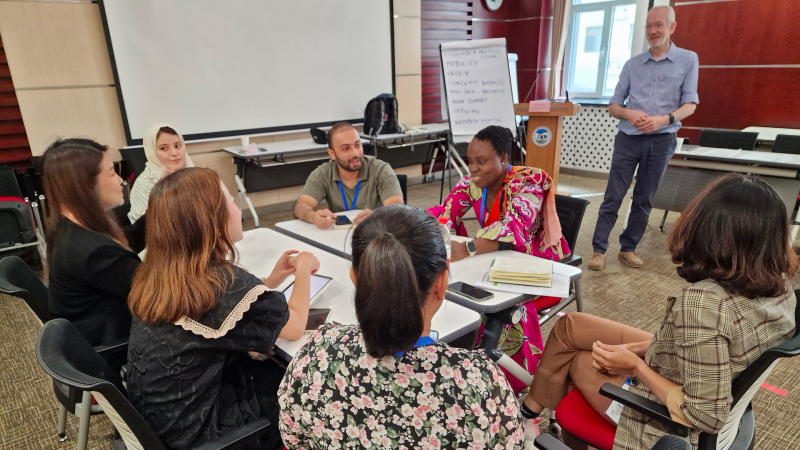
The workshop also set the stage to establish new ties among the grant recipients and a group of scientists from Kazakhstan, the Lao People's Democratic Republic, Thailand, and Viet Nam, invited by ICCES Director Zhaohui Lin to include Asian perspectives in the climate discussion.
Read the interview to ICCES Director Zhaohui Lin here
"This workshop exemplifies how international collaboration and gender inclusivity can produce tangible, sustainable impacts, equipping the next generation of scientists to lead climate action in their communities," said Lin. "Through this collaboration, we are investing in the future of science and society."
CAS and TWAS partnership started in 2013, when five CAS-TWAS Centres of Excellence (CoE) were established to advance science, technology, and innovation collaboration in the global South. The CAS-TWAS-Elsevier Foundation partnership further amplifies this goal by placing a specific focus on gender inclusivity and supporting female scientists from developing countries.
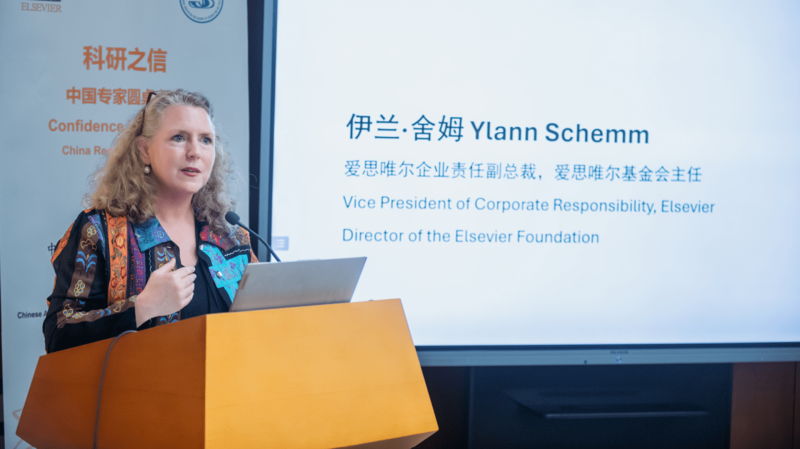
"Women bear the brunt of climate change. The TWAS-Elsevier Foundation climate women partnership recognizes this and the fact that women scientists are often deeply embedded in their communities," said the Executive Director of The Elsevier Foundation, Ylann Schemm. "This enables them to tackle issues ranging from climate literacy to sustainable food gardens and climate resilient pastoralism from different perspectives, ensuring that mitigation efforts make a real difference on the ground.”
Read Ylann Schemm's considerations about the workshop’s outcomes here
The projects were meant to address local problems linked to climate change and included improving food security in Guatemala, building the their resilience of pastoral women in Kenya, conservation of mangroves in Ghana, and empowering girls and women from earliest childhood.
One of the workshop participants was Sara Nowreen, principal investigator and professor at the Institute of Water and Flood Management, Bangladesh University of Engineering & Technology, who teamed with Afroza Sharmin, executive engineer at Bangladesh Agricultural Development Corporation. Their project aimed to enhance climate-resilient groundwater supply and food security in Bangladesh through a technique called aquifer storage and recovery (ASR).
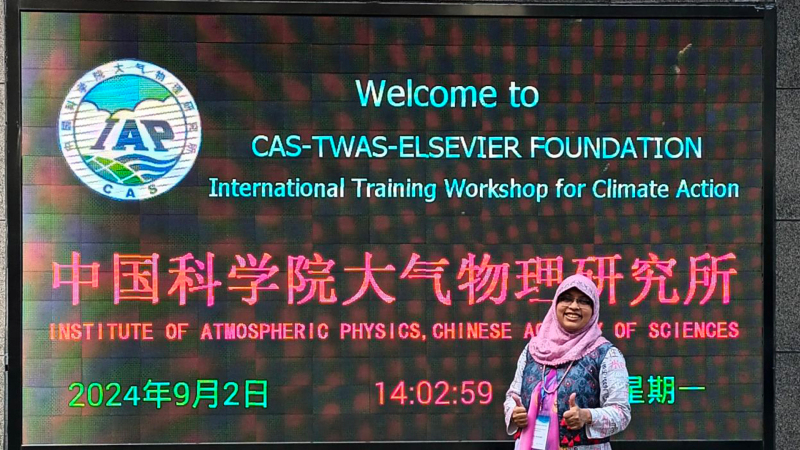
ASR is a water management approach that allows storage of excess freshwater during wet periods and recovery during dry periods, Nowreen explained. It entails directly injecting surface water from rainwater storage sites, ponds, or rivers into an aquifer—a layer of rock or sediments that can hold groundwater.
In many areas of Bangladesh, drinking water is scarce and the agricultural sector sometimes struggles to irrigate farmland, added the scientist. Therefore, maintaining a water supply for irrigation is crucial to achieve the country’s high-priority food security goal.
"ASR helps reduce the salt level in water to make it safe for growing crops. We believe that it will be a useful, innovative water management solution that local and regional farmers facing drought, water-logged, and salinity issues will benefit from," Nowreen said. The cost-effectiveness of the technique will allow wider application increasing crop production, the scientist added.
"The CAS-TWAS-Elsevier Foundation initiative deserves thanks for bringing together amazing women from different continents," she said. "This workshop gave us a strong forum to talk about typical local gender issues, honouring the resilience of strong women leaders in overcoming them. Having the chance to cultivate these essential connections among principal investigators from different countries is genuinely praiseworthy."
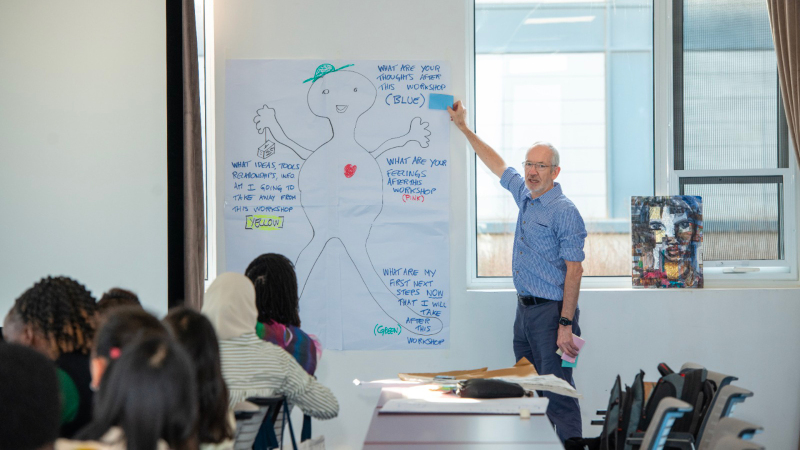
Scott Jones, co-director of Mind the Gap research and training network, finished off the workshop with an interactive round table that helped the participants to devise potential actions and future collaborations. Through a cartoon that they filled with sticky notes full of ideas, the scientists put on paper major take-home messages and figured out what joint actions they could do once back home.
"Our goal with this partnership is to serve as a catalyst to support women scientists in tackling the adverse effects that climate change has on their communities," Schemm noted. "Working with new partners such as the CAS-TWAS Centre of Excellence for Climate and Environment Studies underscores the great potential this approach has for impact."
Cristina Serra

